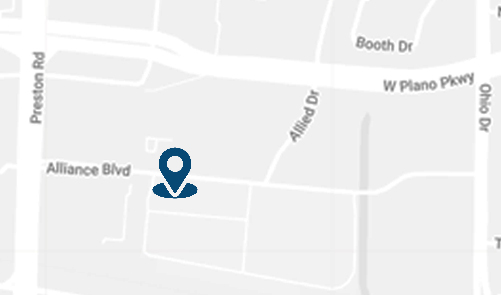By: Dr. Dev Batra | 01.29.23

If you’re a woman, every month from your early teens to your early 50s, your ovaries release an egg ready to be fertilized. If it’s not fertilized, you experience menstrual bleeding — a sloughing off of the uterine tissue that’s not needed at that time. Along with the bleeding, you may experience several other symptoms and even conditions such as varicose veins.
At Texas Vascular Institute, now with locations in Dallas and Hurst, Texas, interventional radiologist Dr. Dev Batra sees a lot of cases of varicose veins. However, most women aren’t aware that menstruation is a potential cause. That’s why he’s put together this guide on the relationship between the two.
What is a varicose vein?
Varicose veins are damaged veins caused by the failure of the internal valves that prevent blood from flowing back into the lower extremities. When the valves become damaged, often from high blood pressure, blood flow in the area becomes sluggish, and the blood pools around the damaged valve, causing the vein to engorge. The result is a colored, ropy protrusion, usually found on the back of the legs.
In addition, veins in the lower abdomen may turn varicose. Pelvic Congestion Syndrome (PCS) — enlarged veins in the pelvic region — also results from damaged valves that affect blood flow. Symptoms of PCS include pelvic pain, heavy or prolonged periods, pain after sex, and varicose veins. Varicose veins are therefore both a cause and an effect of PCS.
You have a higher chance of having PCS if your varicose veins appear high up in the thighs, groin, and vulvar region. Your risk is also higher if you’ve given birth, since pelvic veins stretch during pregnancy. And it’s not uncommon for pregnant women to develop varicose veins, as the additional weight they carry puts extra pressure on the veins in the lower extremities.
How does menstruation affect varicose veins?
Women experience differences in blood flow at different reproductive stages of their lives. In fact, when women menstruate blood flow to peripheral areas decreases. With poor circulation, blood can pool around veins’ valves, damaging them and leading to varicose veins.
In addition, the pressure of the increased blood flow during menstruation, especially if you have heavy periods, may contribute to PCS and valve damage in the abdomen over time, leading to varicose veins.
To learn more about menstruation’s effects on varicose veins, or to schedule a vein screening or treatment with Dr. Batra, give Texas Vascular Institute a call at either location or book online with us today.

Read more blogs
Why Are My Veins Blue?
Wondering why your veins look blue under your skin? Learn the science behind vein color, how light affects what you see, and what it means for your health.
10 Warning Signs Of Poor Circulation And How To Fix It
Have you ever noticed your feet always feel cold, or your legs cramp up when walking? These could be warning signs of poor circulation, a condition that can impact your daily life and overall health.
Leg Pain Keeping You Up at Night?
Are restless, aching legs keeping you from a good night’s sleep? Nighttime leg pain can interfere with your rest, affecting your health, mood, and ability to take on daily activities. While there can be various causes, nighttime leg pain - especially when accompanied by feelings of heaviness, throbbing, or itchiness - could point to a vein issue.
WHAT OUR PATIENTS
have to say
Texas Vascular Institute always appreciates feedback from our valued patients. To date, we’re thrilled to have collected 378 reviews with an average rating of 5 out of 5 stars. Please read what others are saying about Texas Vascular Institute below, and as always, we would love to collect your feedback.
Leave a Review
Amazing Practice
I'm very particular with my Healthcare and tend to be cautious with referrals to specialists. This office is amazing from the first point of contact. Their staff are friendly, professional and highly knowledgeable. Then the Dr is just as amazing as his staff, absolutely brilliant. Office manager Jessica has this office running like a well oiled machine and does so with a smile, an air of confidence, kindness and professionalism. Love this practice!!
- Richard G.

Beyond Thankful
Dr Batra and his staff are amazing! We are so grateful to have found him. Everyone is so kind and so caring and Dr Batra explains everything so well and does procedures with excellence. Beyond thankful to be under their care!!!
- Bitsy P.

Gold Standard
This is a gold standard for how a medical practice should be run. I was promptly seen at my scheduled time, my ultrasound was thorough and I received plenty of attention and care from the staff and Dr.Batra.
- Weronika L.
INSURANCE
We accept most major insurance plans. Please contact the medical office for all insurance related questions.









8330 Meadow Rd #100
Dallas, TX 75231
For Appointments: 972-798-4710
General Inquiries: 972-646-8346

809 West Harwood Rd, Suite 101,
Hurst, TX 76054
For Appointments: 972-798-4710
General Inquiries: 972-646-8346

4716 Alliance Blvd Suite #180,
Plano, TX 75093
For Appointments: 972-798-4710
General Inquiries: 972-646-8346

